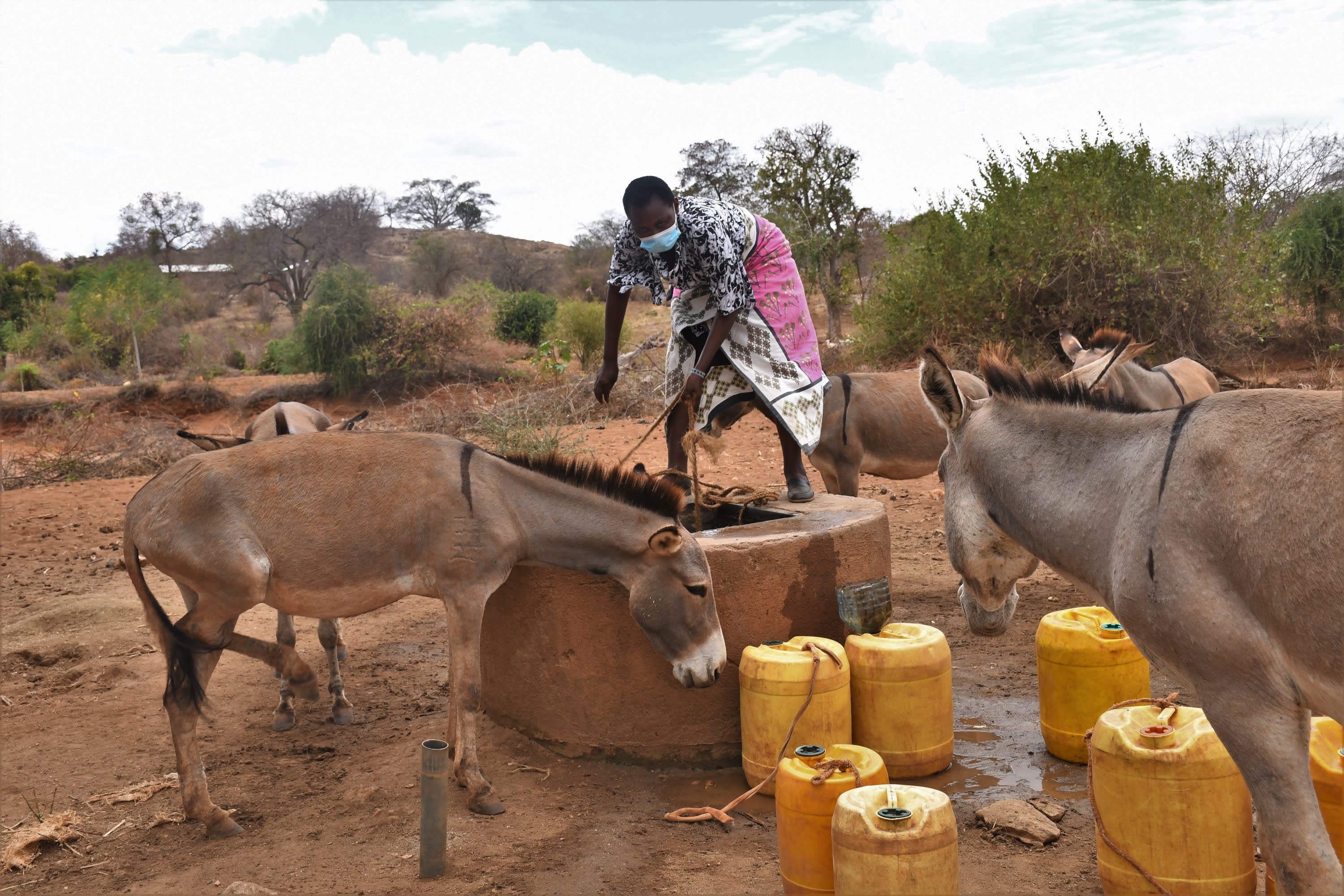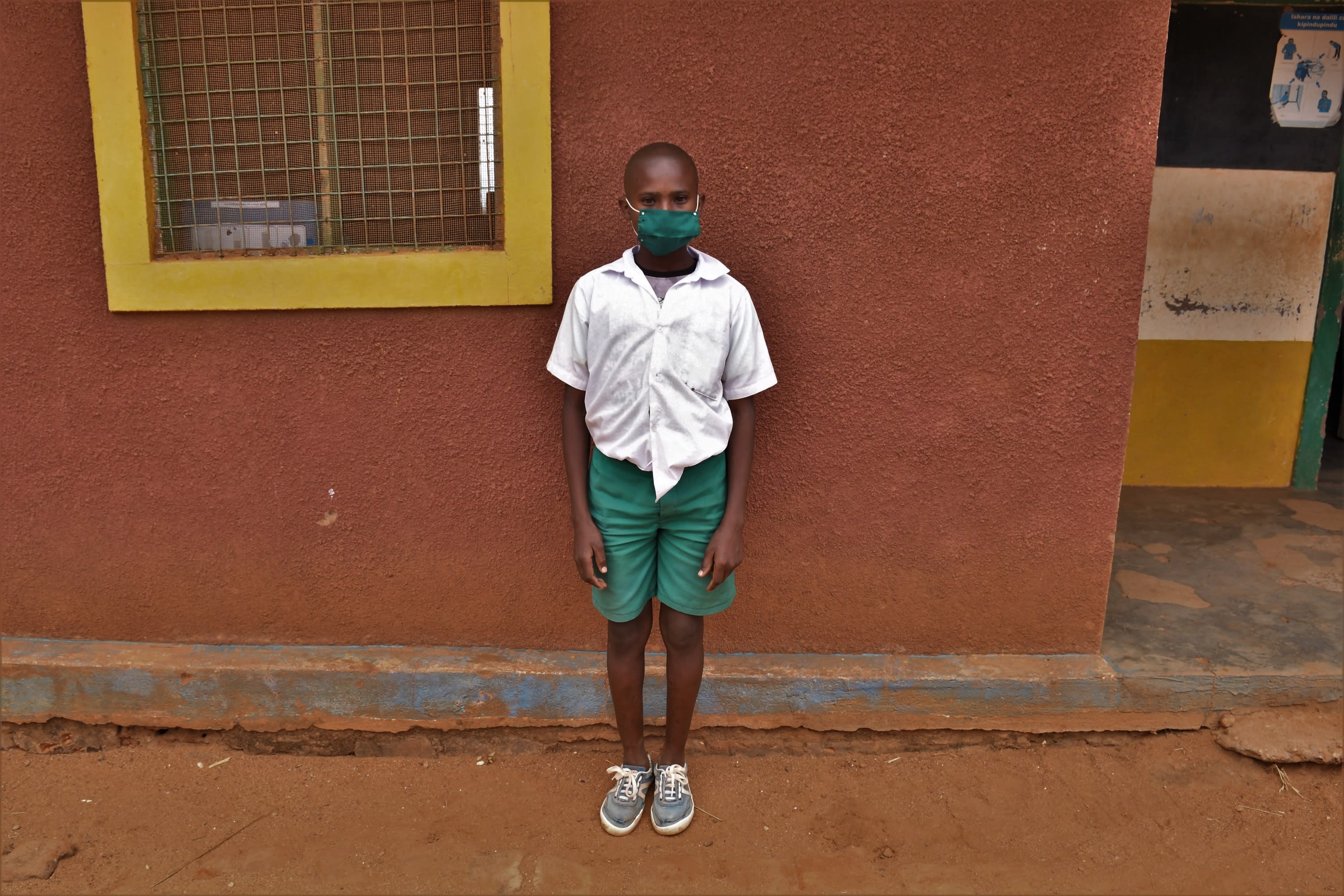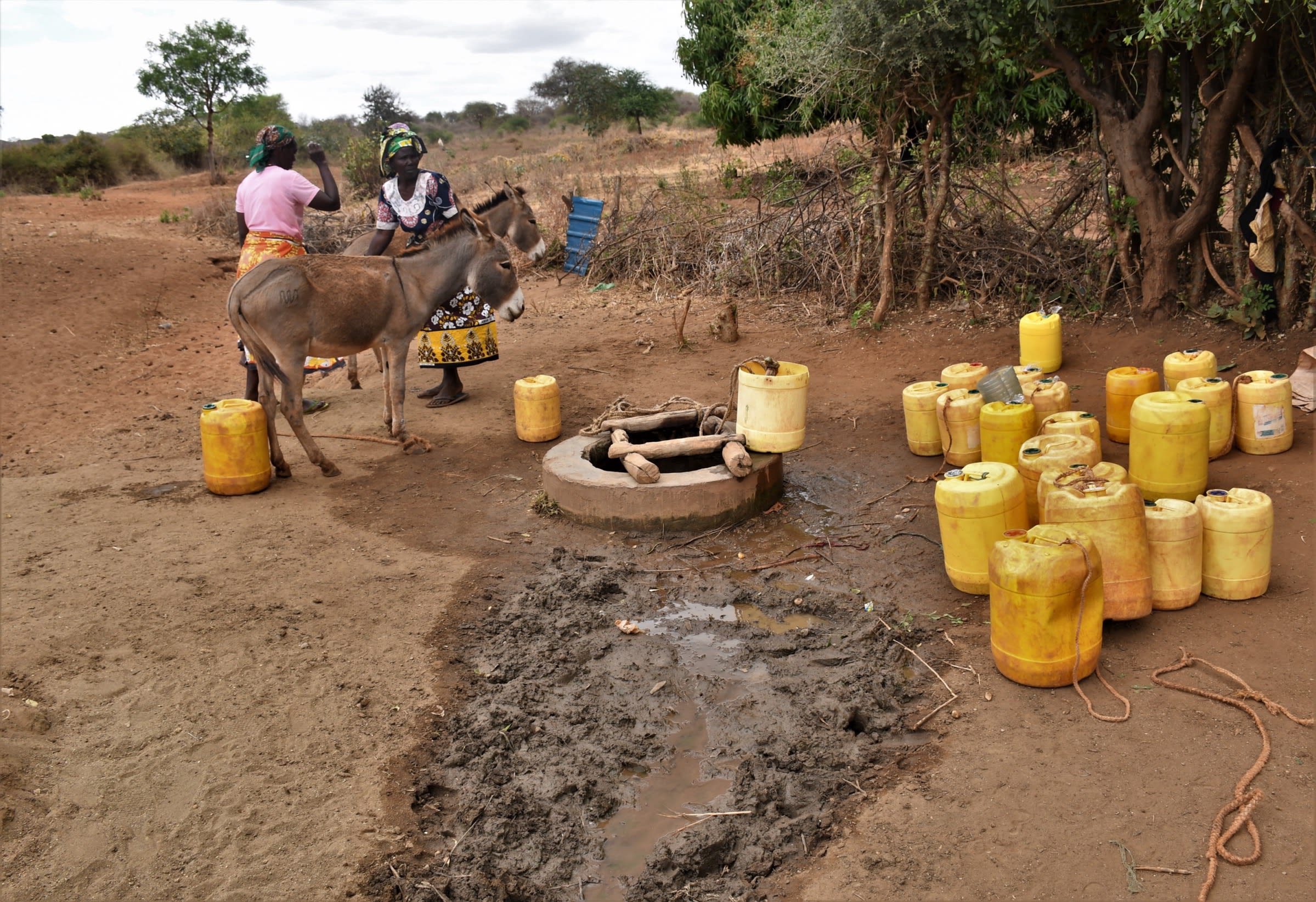A thousand people depend on Mukikanda Community's two open, hand-dug wells. Some people wake up as early as 4 a.m. to get to the water point before queues form...or before the water dries out for the day.
"The water point is far away," explained 43-year-old farmer, Agnes Mutheki (pictured below at one of the wells). "I have to wake up at 4 a.m. and walk about 4 kilometers (2.38 miles) to acquire water for my family."

"When the dug wells are dry, I have to walk several kilometers to purchase water from a vendor," Agnes continued. "This is quite expensive, especially since I do not have crops to sell, thanks to the water scarcity."
The low quantity of water has led to quarrels between community members: everyone wants to finish up and concentrate on other affairs. And it's easy to understand why. The long distances some people have to travel and endless lines at each water point mean that many of the water-fetchers don't return home from fetching water until the afternoon. By then, they lack the energy to cook, clean, farm, or even, in the childrens' case, study.

"I have to go the water points and bring water to school, which affects my academic performance," said 14-year-old Dickson K (pictured above).
For Dickson, fetching water for his family is more than just tedious and inconvenient. "The dug wells are dangerous," he explained. "One can fall inside the pit."

"The contaminated water from these water points have also led to issues such as stomachache," Dickson continued, "which makes me uncomfortable while learning in class."
That's another problem: after going through so much trouble to procure the water, it makes the community members sick. The dug wells are open to contamination from both the community members and their livestock. This exposes the residents to infections such as typhoid, amoeba, dysentery, diarrhea, and more.
"The water is contaminated, but I do not have any other option besides drinking it and using it for cooking," Agnes explained. "It is also difficult for me to uphold proper hygiene and sanitation because I have to use the available water sparingly."
This lack of cleanliness means Mukikanda's people are even more likely to become sick. Most of the community members are unable to clean their homes and latrines or conduct regular dental care or body care (such as bathing and brushing teeth) because they can't spare the water.
It's not only families who depend on these two wells. Five schools and seven churches send their students and worshippers to fetch water for their facilities' needs, which means the extended community would benefit from a centralized source of safe, reliable water. The proposed location for the sand dam and shallow well projects is the middle point of four villages (Katemwa, Mui, Ndathani, and Kibaki) who desperately need a solution to their water scarcity crisis.
Reliable Water for Mukikanda
Our main entry point into Mukikanda Community has been the Mukikanda Self-Help Group, which is comprised of households that are working together to address water and food scarcity in their region. These members will be our hands and feet in both constructing water projects and spreading the message of good hygiene and sanitation to everyone.
Hand-Dug Well
This particular hand-dug well will be built adjacent to a sand dam project, which will supply clean drinking water once it rains. We have supplied the group with the tools needed for excavation. With the guidance of our artisans and mechanics, the excavated well will be cased, sealed with a well pad, and then finished with a new AfriDev pump.
Excavation takes a month or more on average, depending on the nature of the rock beneath. Construction of the well lining and installation of the pump takes 12 days maximum. The well will be lined with a concrete wall including perforations so that once it rains, water will filter in from the sand dam.
This well will bring clean water closer to families.
New Knowledge
These community members currently do their best to practice good hygiene and sanitation, but their severe lack of water has been a big hindrance to reaching their fullest potential.
We will hold hygiene and sanitation training sessions with the Mukikanda Self-Help Group and other community members to teach about important hygiene practices and daily habits to establish at the personal, household, and community level. This training will help to ensure that participants have the knowledge they need to make the most out of their new water point as soon as water is flowing.
One of the most important topics we plan to cover is the handling, storage, and treatment of water. Having a clean water source will be extremely helpful, but it is useless if water gets contaminated by the time it is consumed. We will also emphasize the importance of handwashing.
We and the community strongly believe that all of these components will work together to improve living standards here, which will help to unlock the potential for these community members to live better, healthier lives.
We typically work with self-help groups for 3 to 5 years on multiple water projects. We will conduct follow-up visits and refresher trainings during this period and remain in contact with the group after all of the projects are completed to support their efforts to improve sanitation and hygiene.

 Protected Dug Well
Protected Dug Well
 Rehabilitation Project
Rehabilitation Project
































